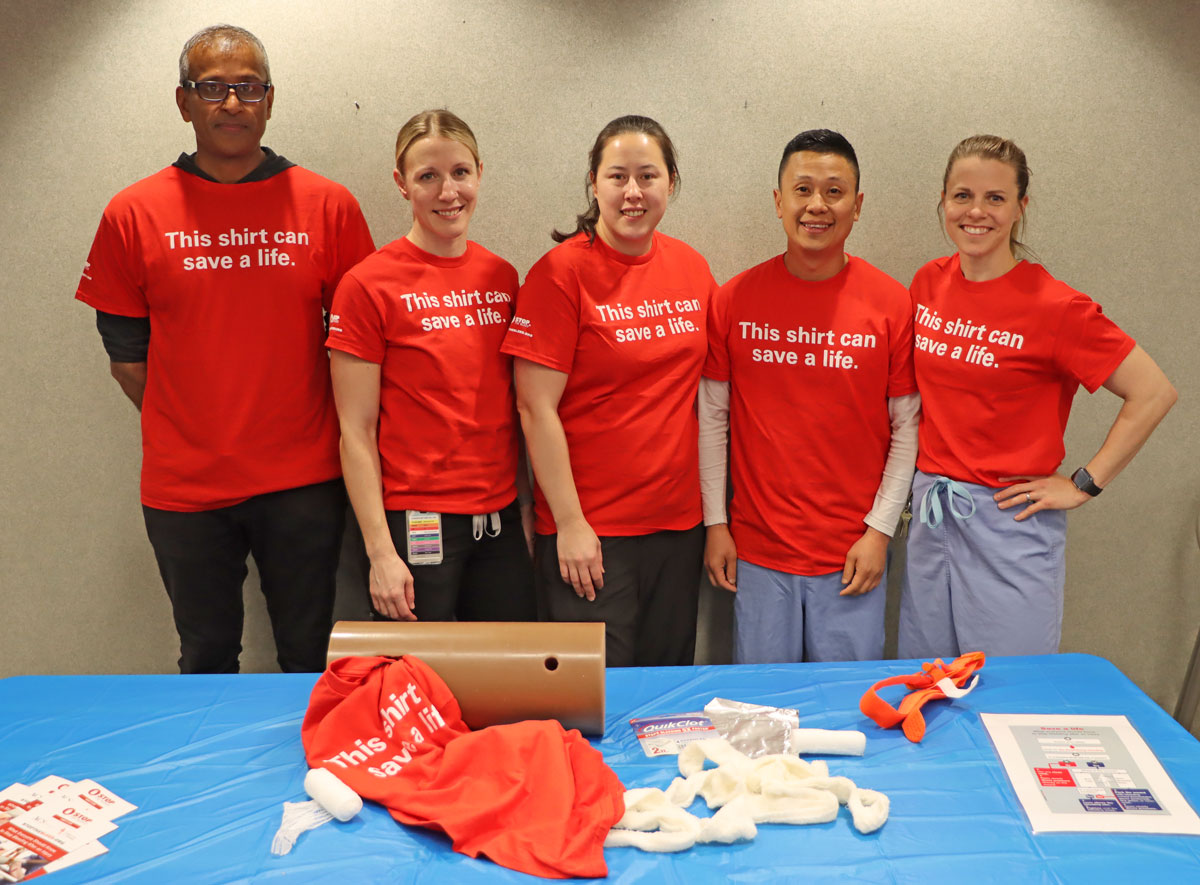GUELPH – Helping people know what to do when an injury causes life-threatening bleeding is the focus of the Stop the Bleed Program through Guelph General Hospital.
“There is no time to spare when a serious accident or disaster occurs,” GGH director of emergency services Andrea de Jong stated in a news release.
“Caring for someone while waiting for emergency service teams to arrive can be the difference between life and death for those that are injured.”
The program provides training needed to turn a witness into an immediate responder, de Jong said.
The skills taught in the 90-minute class would be the same as those taught in a first aid class, de Jong stated in an email.
“The difference with ‘Stop the Bleed’ is that is goes into more depth about life-threatening bleeding and interventions than a standard first aid course,” she said.
It is designed by the College of Surgeons of America, based on the most up-to-date evidence, and is focused on controlling the type of bleeding that might be caused by things such as gunshot wounds, car accidents, industrial accidents, and stabbings, said de Jong.
According to the hospital’s news release, emergency services are able to respond within eight minutes on average, while victims of such events can experience life-threatening effects from uncontrolled bleeding within five to 10 minutes.
The Stop the Bleed program is available to the general public at a cost of $50 per person, but 65 high school students from Guelph’s John F. Ross Collegiate Vocational Institute took part in a complimentary class this month as part of their health-care-focused programming.
“It was really great to have our students participate in this program,” John F. Ross teacher Paul Lydan stated in the release.
“The instructors were knowledgeable and helpful. It made a huge difference for the students to hear directly from people who provide care to those who have experienced a traumatic event.”
Instructors include nurses and doctors from the Trauma Program and Guelph General, which was identified in March as a Level III Trauma Centre.
“As a Level III Trauma Centre we want the best outcomes for our patients,” de Jong said.
“This starts with people in the community knowing how to respond to a serious bleeding medical emergency while waiting for emergency service teams to arrive.”
The program runs once a month from May through December.
People can learn more and sign up online atgghorg.ca/emergency-department/level-iii-trauma-centre.




